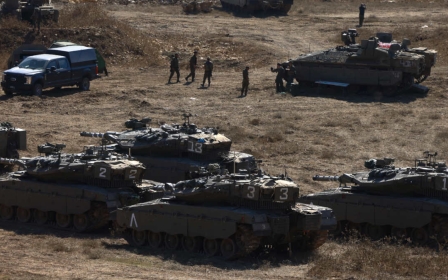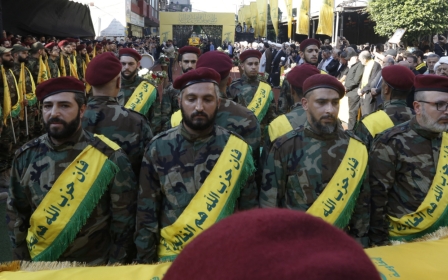Biden and Netanyahu hold call as US tries to shape Israeli attack on Iran
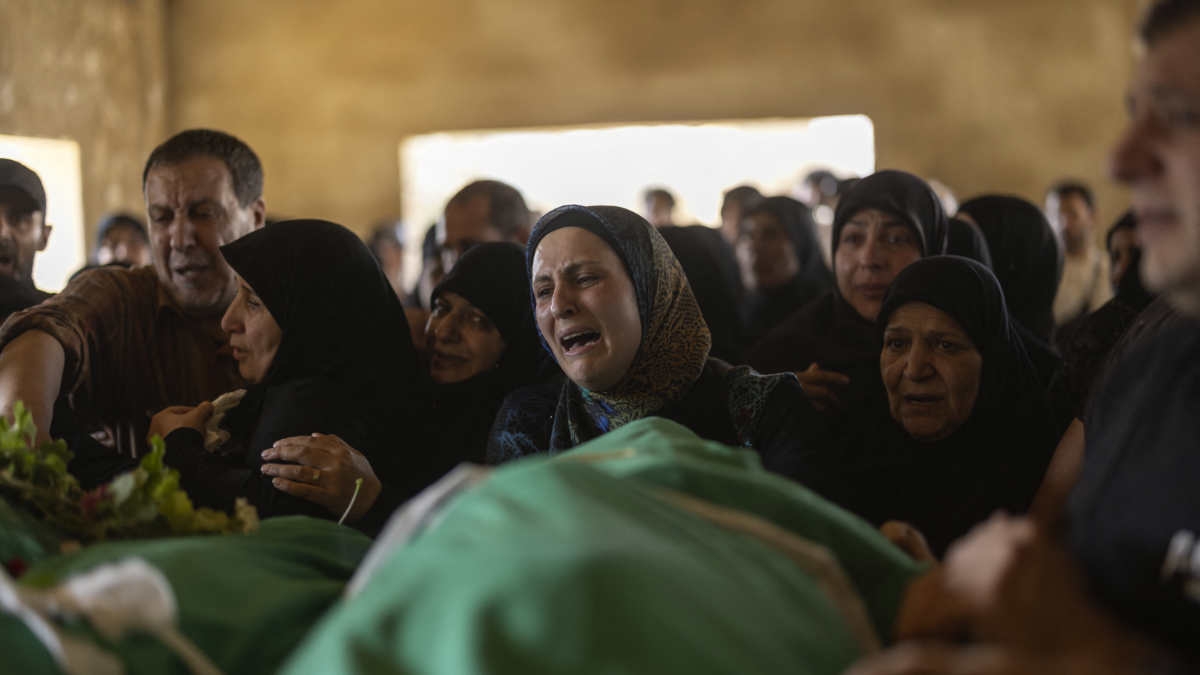
US President Joe Biden spoke to Israeli Prime Minister Benjamin Netanyahu on Wednesday for the first time in months, as the region braces for Israel’s retaliation against Iran’s ballistic missile attack and Israel sends more troops into Lebanon.
The White House said the two leaders spoke for 30 minutes and described the call as "direct” and “productive". Biden urged his Israeli counterpart to"'minimise harm" to civilians in Lebanon but said the US supported Israel's "right to protect its citizens from Hezbollah".
Israel’s response to Iran’s attack was also high on the agenda. Biden has lobbied publicly for Israel to constrain its actions, saying he would not support Israeli strikes on nuclear or energy sites.
Around the time the call was taking place, Israel’s defence minister in a video shared on X said that Israel’s response to Iran’s missile attack “will be deadly, precise and above all surprising,” he said. “They will not understand what happened and how it happened…They will see the results.”
Those comments may reflect secret lobbying by US defence and intelligence officials in the Biden administration as they look to steer Israel to pursue covert attacks against Iran as opposed to high-profile missile and drone strikes, Middle East Eye reported on Tuesday.
New MEE newsletter: Jerusalem Dispatch
Sign up to get the latest insights and analysis on Israel-Palestine, alongside Turkey Unpacked and other MEE newsletters
“A series of small-scale attacks, hitting different places, would destabilise the regime even more and sow confusion. Khamenei is already paranoid,” a senior US official told MEE, referring to Iran’s supreme leader, Ayatollah Khamenei.
Over the last year, the Biden administration has regularly said it opposed Israeli military action which would widen a conflict that started as an Israeli response to the Hamas-led 7 October attacks on Israel. But one year later, the spectre of a direct war between Iran and Israel hangs over the Middle East.
The US's closest ally in the region pressed ahead with a full-scale invasion despite the stated "red lines" of Rafah in southern Gaza and an unprecedented assassination campaign of Hamas and Hezbollah’s leadership, which analysts and diplomats have warned was almost guaranteed to widen the war.
With Israel now stepping up its offensive in Lebanon, the US says it is working to help Americans evacuate while the Beirut airport remains open, including providing emergency passports or other documentation.
Israel eyes replenishing Arrow interceptors
Critics of the Biden administration say it has failed to use its leverage in the form of withholding arms transfers to Israel to shape its ally’s actions.
The Biden-Netanyahu call also came at an awkward time, on the heels of a new book by US journalist Bob Woodward based on mainly anonymous sources which said Biden accused Netanyahu in July of having no strategy, shouting: "Bibi, what the fuck?”.
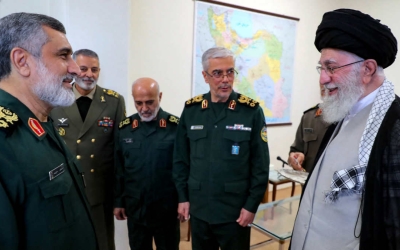
A call between the two leaders has been expected since last week. In a sign of the tensions, Israeli Defence Minister Yoav Gallant cancelled a Wednesday visit to the Pentagon last minute, saying it was called off at Netanyahu’s request until after he spoke with Biden.
Gallant had been expected to discuss Israel's military planning with US Defence Secretary Lloyd Austin, but also efforts to refill Israel’s air defence system, including Arrow interceptors which Israel used to shoot down about 180 Iranian ballistic missiles last week.
Western and Arab diplomats who have spoken to MEE expressed a sense of resignation towards US diplomacy with less than four weeks to go until the US presidential elections, with candidates Vice President Kamal Harris and Donald Trump locked in a tight race.
With US diplomacy seemingly rudderless before the election, it appears that leaders in the Middle East are driving events. Netanyahu’s government has started a new offensive in northern Gaza and has sent thousands of more troops into Lebanon.
On Wednesday, the US said Israel must avoid conducting military operations in Lebanon like it has in Gaza.
"I'm making very clear that there should be no kind of military action in Lebanon that looks anything like Gaza and leaves a result anything like Gaza," State Department spokesman Matthew Miller said.
Hundreds of thousands flee Lebanon to Syria
Israel is trying to press the gains of its air campaign against Hezbollah on the ground. So far, US officials are breathing a sigh of relief that Israel has mainly stuck to tactical incursions against Hezbollah. But it is facing stiff resistance.
On Wednesday, Hezbollah said its fighters had fired several rocket barrages at Israeli troops near the village of Labbouneh, close to Lebanon’s Mediterranean coast, and had managed to push them back. Fierce fighting was reported in the southeast with battles raging in the village of Maroun el-Ras and the border villages of Mays al-Jabal and Mouhaybib.
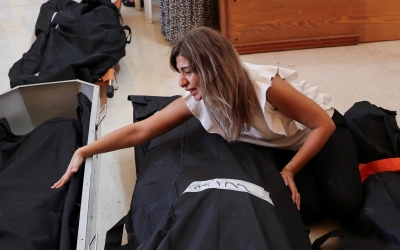
In the village of Maroun el-Ras, Israeli troops were filmed raising an Israeli flag, in a symbolic move that appeared to embitter emotions across Lebanon’s divided sectarian system, where there is much anonymity towards Hezbollah.
Hezbollah said it forced Israeli troops to retreat and the flag was removed.
Meanwhile, in a sign that law and order may be breaking down in Shia areas of Beirut where Hezbollah was the dominant power, photos posted on social media showed men, bloodied and beaten, chained to street signs for alleged looting.
The UN said on Tuesday that around 1.2 million people have been displaced by Israeli strikes on Lebanon, mainly from towns and areas of Beirut where Shia are the dominant sect.
Arab and western officials who have spoken to MEE expressed concern that the refugee crisis could spark sectarian tensions in Lebanon akin to the country’s 15-year civil war. Lebanon has 18 official sects, with the dominant ones being Shia, Sunnis and Christians.
Hundreds of thousands of people have already fled to destitute Syria. On Monday, Lebanon's government said more than 400,000 people - including 300,000 Syrians and roughly 100,000 Lebanese - had fled to Syria in the last two weeks.
Middle East Eye delivers independent and unrivalled coverage and analysis of the Middle East, North Africa and beyond. To learn more about republishing this content and the associated fees, please fill out this form. More about MEE can be found here.


